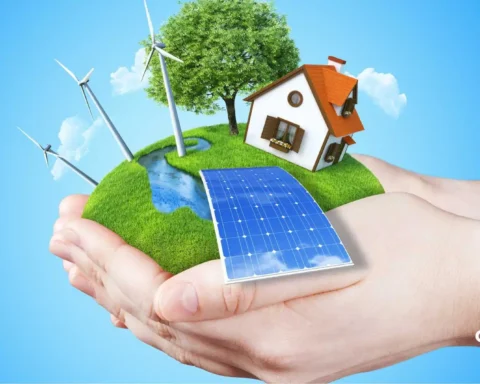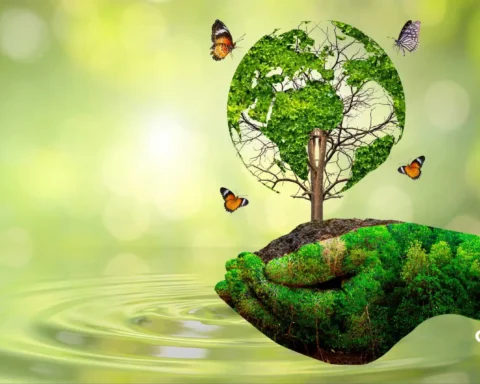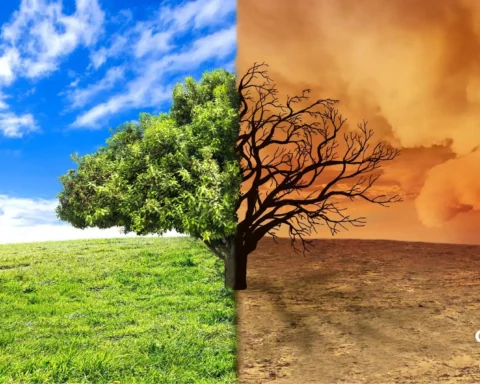There has been much debate over the various agricultural styles in the 21st century. These primarily involve two approaches: sustainable agriculture and more modern practices. While the proponents of each approach put forward a strong argument, it is crucial to understand and make an opinion for oneself. So, what is the difference between sustainable agriculture and modern agriculture?
This blog pits the two popular approaches against each other to answer the question.
Table of Contents
What is Sustainable Agriculture?
Sustainable agriculture is an approach deep-rooted in traditional and organic farming methods. This approach puts a spotlight on preserving natural resources and focuses on providing enough for future generations. Sustainable agriculture also advocates against wastage and pollution, and it is often very effective in fighting against soil erosion and promoting soil fertility. Examples of sustainable agriculture practices can include crop rotation, using animal manure and green manure, agroforestry and an emphasis on saving renewable resources.
Sustainable farming practices also emphasize efficient resource use, leading to increased crop production and a lower environmental impact. Organic practices can also regrow natural ecosystems and conserve natural resources for future generations. Sustainable farmers can achieve their agricultural production goals by utilizing a natural approach to agriculture, focused on natural and animal welfare, while promoting environmental sustainability.
Sustainable agricultural practices also enhance ecosystem services, promote natural farming processes, reduce water and air pollution, increase soil organic matter and soil health, improve water quality and levels, and decrease overall environmental pollution without using chemical inputs or synthetic fertilizers. This forms a key difference between sustainable agriculture and modern agriculture.

What is Modern Agriculture?
The last few decades and centuries have seen a sharp rise in food and agricultural shortages in the world. To combat food insecurity and inadequacies, new and modern approaches to agriculture have begun relying on modern technology to increase crop yield and food production. Modern farming techniques involve the use of digital technology to increase agricultural productivity. These modern farming practices move away from organic methods, instead emphasizing the need to match the growing demand for food from the world.
Instead of organic agriculture, industrial agriculture uses synthetic fertilizers to solve issues such as pest infestations or crop productivity. Industrial methods substantially lower environmental sustainability, moving away from conventional farming methods. By using chemical fertilizers and pesticides, modern farming methods replace the environmental and ecological benefits of organic farming, making this yet another key difference between sustainable agriculture and modern agriculture.
What is the Key Difference Between Sustainable Agriculture and Modern Agriculture?
The key difference between sustainable agriculture and modern agriculture lies in their contrasting approaches to farming. Sustainable agriculture is centred around practices that promote environmental health and increased environmental quality. It emphasizes the importance of maintaining and enhancing the natural ecosystem through methods that conserve resources and improve soil health, soil moisture, soil type, and soil structure. Organic techniques such as crop rotation, cover cropping, and organic fertilizers are important components of sustainable farming, aiming to rejuvenate the land and create a self-sustaining growth cycle.
Modern agriculture is driven by the need to meet the growing demands of a rapidly expanding global population. This approach often prioritizes efficiency and high yields, thus causing increased negative impact on nature and environmental degradation. It heavily relies on synthetic materials such as chemical fertilizers and chemical pesticides to enhance crop production. These methods can lead to increased productivity in the short term, but they often come with significant negative effects on environmental factors, including soil degradation, pollution of water bodies, and the loss of biodiversity from their natural habitats.
Ultimately, the key difference between sustainable agriculture and modern agriculture remains in their core ideology. While modern agriculture has succeeded in producing large quantities of food, these practices have also caused environmental challenges that threaten the sustainable practices of our food systems. In contrast, sustainable agriculture practices aim to build an agricultural system by focusing on long-term environmental benefits and ecological processes rather than short-term gains.
ALSO READ:
Conclusion
In conclusion, this blog explores the difference between sustainable agriculture and modern agriculture. While modern agriculture has been vital in increasing food production, its negative environmental impact poses a severe risk to the long-term sustainability of our food systems. Meanwhile, sustainable agriculture focuses on ecological balance and resource conservation as well as promoting environmental sustainability. Organic agriculture ensures reduced environmental pollution and agricultural sustainability by prioritizing sustainable practices that protect the environment and support future generations. This approach is in line with matching sustainable development goals and reducing greenhouse gas emissions.

FAQs
What are the Differences Between Sustainable Agriculture and Modern Agriculture?
The primary difference between sustainable agriculture and modern agriculture lies in their approach to environmental impact and resource use. While sustainable agriculture focuses on utilizing traditional ecological practices that protect the environment, modern agriculture often focuses on maximizing short-term yields through the use of synthetic chemicals and fertilizers, which can lead to long-term environmental degradation.
How Sustainable is Organic Agriculture?
Organic agriculture is closely associated with traditional farming methods. It is highly sustainable as it avoids synthetic chemicals and prioritizes soil health and biodiversity. The difference between sustainable agriculture and modern agriculture becomes evident as organic agriculture supports long-term ecological balance, while modern methods of farming can deplete natural resources and harm ecosystems.
Which Farming Method is More Sustainable?
Sustainable agriculture, which includes organic and traditional methods of farming, is generally more sustainable than modern agriculture. The difference between sustainable agriculture and modern agriculture is that traditional methods focus on preserving the environment and resources for future generations, while modern practices often prioritize immediate agricultural productivity at the cost of overall environmental sustainability.









